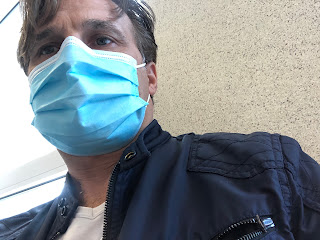In the coronavirus news headlines: several U.S. states have had their highest number of patients to date (Arizona, South Carolina, Mississippi, Tennessee and Montana. Also, daily fatalities rose for the first time since June 7. More than 800 coronavirus deaths were reported on Tuesday. The world has now reported 9.5 million cases and over 480,000 deaths. All this with current waves of increasing numbers in several U.S. states and countries (Mexico, Bolivia and Honduras) and it's only the beginning of summer. If in fact these rising numbers are a result of restrictions being lifted and people being less safe we may be in for a long suffering summer.
If you are interested in how the pandemic has affected our spending you need to read the data report put together by Harvard University's Raj Chetty. He has collected numbers which tell us the story behind the recent economic downturn and it is all very interesting (in a geeky number-crunching-kinda-way). First, the largest consumer spending decreases are happening in wealthy zip codes, a 70% drop compared to a 30% drop in poorer zip codes. Second is how this affected jobs and as you might imagine wealthy neighborhood zip codes laid off 70% of staff compared to about 30% of poor neighborhood business layoffs. Chetty explains it simply by saying, "reductions in spending by the rich have led to loss in jobs mostly for low-income individuals working in affluent areas." Thirdly, the government response to the pandemic (stimulus checks and the paycheck protection program) have not helped as they thought it would. Lastly, state reopenings were not reason enough for people to begin spending again as the wealthy were mostly able to work remotely (no reason to go out and spend). Until the wealthy become unafraid and begin to spend again, the workers in the service industries in the wealthy neighborhoods will continue to suffer the most. You can read the entire article here: https://www.npr.org/sections/money/2020/06/23/881662948/why-reopening-isnt-enough-to-save-the-economy?utm_source=pocket&utm_medium=email&utm_campaign=pockethits

No comments:
Post a Comment